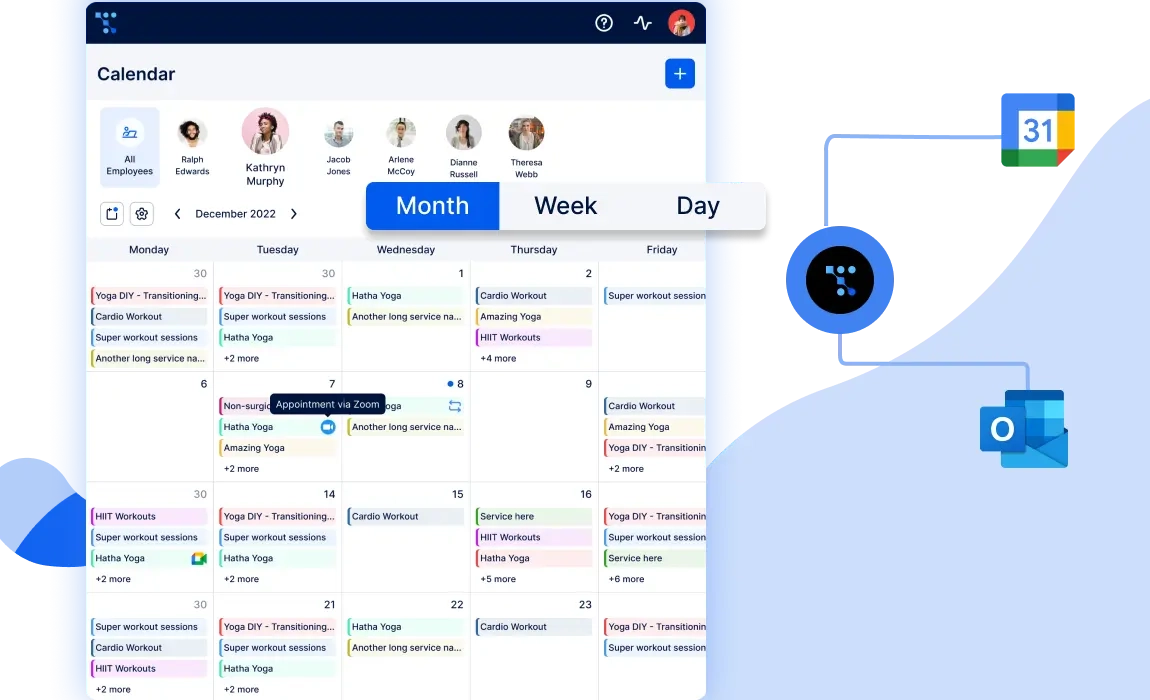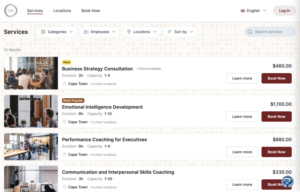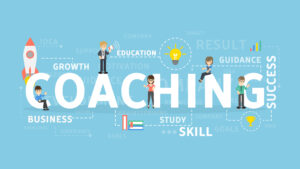Are you passionate about helping individuals and organizations achieve their goals? Do you possess excellent communication skills and a knack for problem-solving? If so, then a career as a business coach might be the perfect fit for you.
In this comprehensive guide, we'll explore the ins and outs of becoming a business coach, covering everything from understanding the role to acquiring the necessary skills and certifications.
Whether you're considering a career change or looking to enhance your existing coaching skills, this ultimate guide will provide you with the knowledge and resources you need to succeed in the dynamic field of business coaching. Let's dive in and explore the best ways to become a business coach.
What is a Business Coach?
A business coach is a professional who works closely with individuals, entrepreneurs, and organizations to help them achieve their business objectives and maximize their potential for success. Unlike consultants who typically provide solutions and advice, a business coach employs a collaborative approach, guiding clients through a process of self-discovery and skill development.
Business coaches assist clients in identifying their strengths and weaknesses, setting actionable goals, and devising strategies to overcome challenges and obstacles. They act as trusted advisors, offering support, encouragement, and accountability to help clients stay focused and motivated on their path to success.
Furthermore, business coaches often specialize in various areas such as leadership development, strategic planning, team building, and productivity enhancement. By leveraging their expertise and experience, they empower clients to unlock their full potential and achieve sustainable growth and prosperity in their businesses.
Why People & Companies Hire Business Coaches?
People and companies hire business coaches for a multitude of reasons, all centered around the desire for growth, improvement, and success. Here are some key motivations:
Goal setting
Business coaches assist individuals and organizations in setting clear, achievable goals and creating actionable plans to accomplish them. Whether it's increasing revenue, expanding market reach, or enhancing leadership skills, business coaches provide the guidance and support needed to turn aspirations into reality.
Accountability
One of the primary reasons people seek out business coaches is for accountability. Coaches hold clients accountable for their actions and commitments, ensuring they stay on track towards their objectives. By providing regular check-ins and feedback, coaches help clients maintain focus and momentum, even when faced with challenges or setbacks.
SWOT analysis
Business coaches help clients identify their strengths and weaknesses and develop essential skills necessary for success. Whether it's improving communication, decision-making, or time management skills, coaches provide personalized guidance and resources to help clients enhance their capabilities and maximize their potential.
Fresh perspectives
It's easy to get stuck in a rut or become blinded by tunnel vision. Business coaches offer fresh perspectives and insights, challenging clients to think outside the box and consider new approaches to problem-solving and decision-making. By providing an outsider's viewpoint, coaches help clients gain clarity and make more informed choices.
Support
Building a successful business can be a lonely and stressful journey. Business coaches provide much-needed support, encouragement, and motivation to their clients, especially during times of uncertainty or adversity. By serving as a trusted confidant and sounding board, business coaches help clients navigate challenges with confidence and resilience.
How to Become a Business Coach? Step-by-step Guide

Becoming a successful business coach requires a commitment to continuous learning and development. Here's a step-by-step guide to help you kickstart your journey to a career in business coaching:
Self-assessment and reflection
Before diving into the world of business coaching, take some time for self-assessment and reflection. Identify your strengths, weaknesses, passions, and areas of expertise. Understanding your unique skill set and values will help you carve out your niche as a business coach.
Perform a SWOT analysis on yourself before you offer it to clients. In other words, becoming your own business coach is the first step to offering these services to others.
Acquiring relevant skills and knowledge
Invest in your education and training to acquire the necessary skills and knowledge required to excel as a business coach. Consider enrolling in courses, workshops, or seminars focused on coaching techniques, leadership development, communication skills, and business fundamentals.
Specializations in business coaching
Explore different specializations within the field of business coaching, such as executive coaching, team coaching, or entrepreneurship coaching. Determine which areas align with your interests and expertise, and consider pursuing specialized training or certifications to enhance your credibility and effectiveness as a coach.
Some of the most popular business coaching specializations are:
- Executive Coaching
Executive coaches work with senior leaders, executives, and C-suite professionals to enhance their leadership skills, strategic thinking, decision-making abilities, and overall effectiveness in driving organizational success. Executive coaching focuses on helping leaders navigate complex challenges, manage change, and inspire high performance within their teams and organizations.
- Leadership Development
Leadership development coaches specialize in helping individuals at all levels of an organization develop and refine their leadership capabilities. They focus on empowering leaders to build strong relationships, foster teamwork, communicate effectively, and inspire others to achieve common goals. Leadership development coaching is essential for grooming the next generation of leaders and driving organizational growth and innovation.
- Team Coaching
Team coaches work with intact teams, departments, or project groups to improve collaboration, communication, and performance.
- Entrepreneurship Coaching
Entrepreneurship coaches support aspiring and established entrepreneurs in launching, growing, and scaling their businesses. They provide guidance on business planning, market analysis, customer acquisition, financial management, and strategic decision-making. Entrepreneurship coaching is essential for helping entrepreneurs navigate the challenges of starting and running a successful venture.
- Sales and Business Development Coaching
Sales coaches specialize in helping sales professionals and business development executives enhance their selling skills, overcome objections, and achieve sales targets. They focus on improving prospecting techniques, sales presentations, negotiation strategies, and relationship-building skills. Sales and business development coaching is critical for driving revenue growth and maximizing profitability in competitive markets.
Gaining practical experience
Gain hands-on experience by seeking internships or mentorships with experienced business coaches or coaching organizations. Shadowing seasoned professionals will provide valuable insights into the day-to-day responsibilities of a business coach and help you refine your coaching skills.
Building a portfolio
Start building a portfolio of your coaching experiences, client testimonials, and success stories. Document your achievements and the impact you've made on your clients' businesses. A strong portfolio will showcase your expertise and attract potential clients or employers.
Using technology to improve client experience
Managing appointments, client schedules, and session bookings will just give you a headache on top of the work that you actually love to do.
That's where Trafft comes in as the ultimate solution for business coaches looking to streamline their booking process and enhance their client experience.
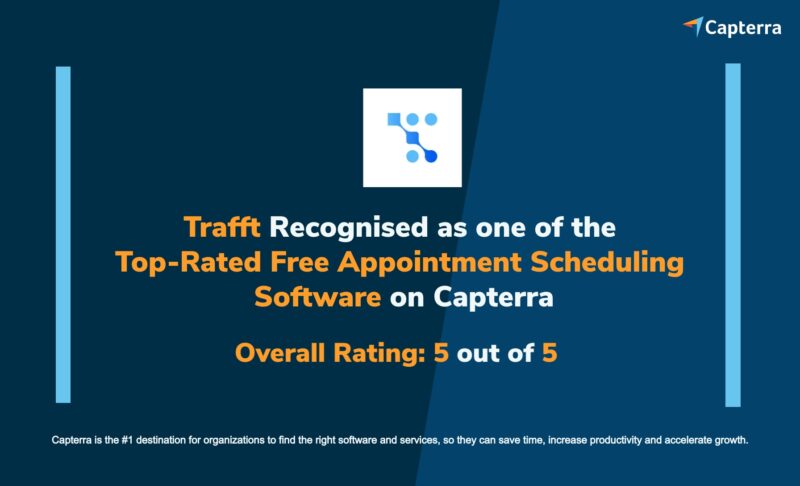
What is Trafft?
Trafft is the best coaching booking software packed with features you need to reduce the administrative burden of running a business. Trafft offers everything you need to efficiently manage your coaching practice and focus on what you do best: guiding your clients toward success.
Here's why Trafft stands out as the best booking software for business coaches:
Key features:
- Trafft simplifies appointment scheduling for both you and your clients with its user-friendly booking interface. Clients can easily view your availability and book appointments online at their convenience, eliminating the need for back-and-forth emails or phone calls.
- With customizable booking forms and automated reminders, Trafft ensures that appointments are scheduled smoothly and efficiently.
- Whether you offer one-on-one coaching sessions, group workshops, or virtual consultations, Trafft adapts to your unique coaching needs. With its flexible scheduling options, you can easily set up recurring appointments, block off time for breaks or preparation, and manage multiple coaching sessions simultaneously.
- From maintaining detailed client profiles to tracking appointment history and notes, Trafft enables you to keep track of important client information and tailor your coaching approach accordingly. With built-in communication features such as automated appointment reminders and follow-up emails, Trafft helps you stay connected with your clients and provide exceptional service every step of the way.
- Stand out from the competition and reinforce your brand identity with Trafft's customizable branding options. From branded booking pages and email templates to personalized booking links, Trafft allows you to showcase your professionalism and create a memorable client experience.
- Gain valuable insights into your coaching practice and track key performance metrics with Trafft's built-in analytics and reporting tools. Monitor appointment bookings, revenue trends, and more to identify opportunities for growth and optimization. With Trafft's intuitive dashboard and customizable reports, you can make informed decisions to maximize your coaching effectiveness and profitability.
But wait! You haven't heard the best news yet! Trafft is free for business coaches who have up to 5 members, meaning you won't pay a dime while you'll save hours on manual administrative work. Explore Trafft's features, take coaching demo booking websites for a spin, and sign up because you have nothing to lose.
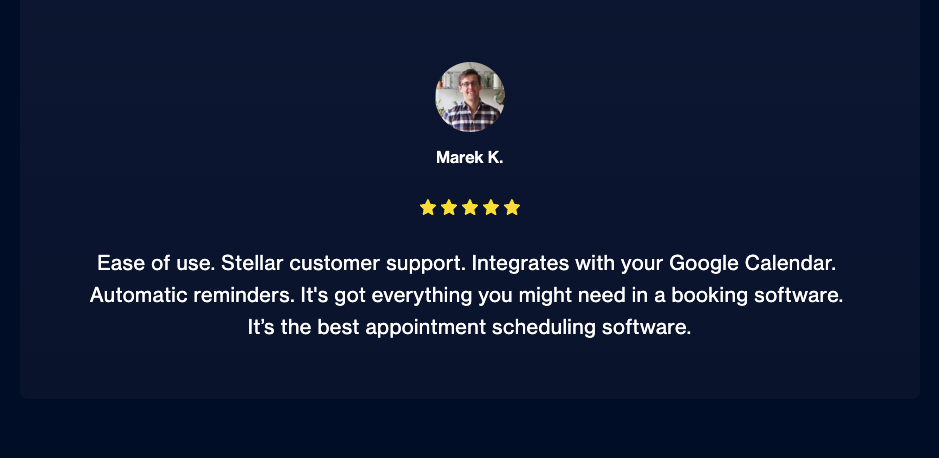
Obtaining certifications and credentials
Consider pursuing certifications from recognized coaching organizations or accrediting bodies. Look for programs that offer comprehensive training, rigorous assessment processes, and ongoing support for professional development. Obtaining certifications will enhance your credibility and validate your expertise as a business coach.
Ensure that the certification programs you choose are accredited by reputable organizations or governing bodies in the coaching industry. Accreditation demonstrates that the program meets high standards of quality and ethics, ensuring that you receive a credible and recognized qualification as a business coach.
Establishing a professional network
Attend networking events, workshops, and conferences within the coaching community to expand your professional network. Connect with fellow coaches, industry experts, and potential clients to exchange ideas, collaborate on projects, and stay updated on industry trends and best practices.
Join online communities and forums dedicated to business coaching to connect with like-minded professionals from around the world. Participate in discussions, share insights, and seek advice from experienced coaches to enhance your knowledge and grow your network virtually.
Business Coaching Certifications You Need
Which certifications do you need to become a business coach?
Overview of common certifications
There are several recognized certifications in the field of business coaching that can enhance your credibility and expertise as a coach. Some of the most common certifications include:
- International Coach Federation (ICF) Credentials:
The ICF offers three levels of credentials (ACC, PCC, MCC) based on coaching experience, training hours, and demonstration of coaching competencies.
- Center for Credentialing & Education (CCE) Certified Professional Coach (CPC):
This certification focuses on coaching skills, ethics, and professional standards.
- Certified Business Coach (CBC):
Offered by various coaching organizations, this certification emphasizes business-specific coaching techniques and strategies.
- Neuro-Linguistic Programming (NLP) Practitioner Certification:
NLP techniques are commonly used in coaching to facilitate behavioral change and enhance communication skills.
Choosing the right certification program
When selecting a certification program, consider the following factors to ensure it meets your needs and aligns with your career goals:
- Choose a program that is accredited by reputable coaching organizations or accrediting bodies to ensure quality and credibility.
- Look for programs that offer comprehensive training in coaching principles, techniques, and ethics, as well as specialization options relevant to your interests.
- Research the qualifications and experience of the program's instructors and mentors to ensure they are experts in the field of coaching.
- Consider the program's format (e.g., in-person, online, hybrid) and scheduling options to accommodate your lifestyle and learning preferences.
- Evaluate the program's tuition fees, additional expenses, and financial aid options to determine its affordability and value.
Tips for success in certification exams
- Familiarize yourself with the exam format, content areas, and study materials provided by the certification program. Create a study plan and allocate sufficient time to review the material.
- Take practice exams and quizzes to assess your knowledge and identify areas for improvement. Review your answers and learn from your mistakes to enhance your understanding.
- Connect with fellow candidates, mentors, or coaches who have successfully completed the certification exam for guidance and advice. Collaborate on study groups or seek individual tutoring if needed.
- Practice relaxation techniques and positive affirmations to manage test anxiety and maintain confidence during the exam. Trust in your preparation and focus on answering each question to the best of your ability.
Role and Responsibilities You’ll Take on When You Become a Business Coach
As a business coach, you'll assume a multifaceted role with diverse responsibilities aimed at guiding individuals and organizations toward achieving their goals and maximizing their potential. Some of the key roles and responsibilities you'll take on include:
Facilitator of growth
- Provide personalized coaching sessions to clients, focusing on identifying strengths, weaknesses, and areas for improvement.
- Collaborate with clients to set clear, actionable goals and develop strategic plans to achieve them.
- Offer guidance, feedback, and support to help clients overcome challenges and obstacles on their journey towards success.
Trusted advisor
- Establish a trusting and confidential relationship with clients, serving as a sounding board for their ideas, concerns, and aspirations.
- Listen actively and empathetically to clients' needs and perspectives, offering non-judgmental support and encouragement.
- Provide objective and constructive feedback to help clients gain clarity, perspective, and confidence in their decision-making.
Accountability partner
- Hold clients accountable for their commitments and actions, ensuring they stay focused and motivated to achieve their goals.
- Monitor progress towards goals, track milestones, and celebrate successes along the way.
- Challenge clients to step outside their comfort zones, take calculated risks, and embrace growth opportunities.
Transformation guide
- Inspire and empower clients to adopt a growth mindset and embrace change as a catalyst for personal and professional transformation.
- Introduce new perspectives, ideas, and strategies to help clients overcome limiting beliefs and outdated paradigms.
- Encourage continuous learning, self-reflection, and self-improvement to sustain long-term success and fulfillment.
Key Skills and Qualities of Business Coaches
To excel in the role of a business coach, you'll need to possess a unique blend of skills, qualities, and characteristics that enable you to effectively support and empower your clients.
Some of the key skills and qualities of successful business coaches include:
- Ability to actively listen, empathize, and communicate effectively with clients from diverse backgrounds and industries.
- Skillful in asking probing questions, facilitating discussions, and conveying ideas and concepts clearly and concisely.
- Proficient in verbal and non-verbal communication techniques to build rapport, trust, and credibility with clients.
- Mastery of coaching techniques, methodologies, and frameworks to guide clients through the coaching process and facilitate meaningful change.
- Skillful in asking powerful questions, active listening, goal-setting, action planning, and accountability management.
- Ability to create a safe and supportive coaching environment that encourages openness, honesty, and self-reflection.
- Ability to empathize with clients' experiences, emotions, and perspectives, demonstrating genuine care and understanding.
- High emotional intelligence to recognize and manage your own emotions, as well as understand and respond effectively to the emotions of others.
- Capacity to build trust, establish rapport, and foster strong relationships with clients based on mutual respect and empathy.
- Solid understanding of business principles, practices, and dynamics across various industries and sectors.
- Familiarity with current trends, challenges, and opportunities in the business world, as well as best practices for organizational development and growth.
- Ability to apply business knowledge and insights to tailor coaching interventions and strategies to meet clients' specific needs and objectives.
- Commitment to upholding the highest ethical standards and professional integrity in all interactions and engagements with clients.
- Adherence to professional codes of conduct, confidentiality agreements, and ethical guidelines governing the coaching profession.
- Transparency, honesty, and accountability in managing client relationships, conflicts of interest, and ethical dilemmas.
FAQ About Becoming a Business Coach
Can you make money as a business coach?
Yes, absolutely! Business coaching is a lucrative profession with ample opportunities to earn a substantial income. Many successful business coaches charge premium rates for their services, especially those with specialized expertise and a proven track record of delivering results.
How much can I earn as a business coach?
The earning potential for business coaches varies depending on factors such as experience, expertise, specialization, geographic location, and client base. According to industry reports, business coaches typically charge anywhere from $100 to $500 or more per hour for their services, with some top-tier coaches earning six or even seven-figure incomes annually.
Do I need a degree to become a business coach?
No, you do not necessarily need a degree to become a successful business coach. While having a formal education in business, psychology, or a related field can certainly be advantageous and may enhance your credibility, it is not a strict requirement for entering the coaching profession.
How long does it take to become a certified business coach?
The time it takes to become a certified business coach can vary depending on several factors, including the certification program you choose, your prior experience and education, and your dedication to completing the required coursework and assessments. Typically, most certification programs range from several months to a year or more in duration.
What are the challenges of being a business coach?
While business coaching can be a rewarding and fulfilling profession, it also comes with its unique set of challenges. Some common challenges faced by business coaches include: building a client base, managing client expectations, and balancing personal and professional boundaries.
Hungry for more?
We have just what you need! Dive into additional resources about coaching and gain more knowledge:
- How to Start a Coaching Business: A Step-By-Step Guide
- The Best Coaching Questions You Could Ask Your Clients
- Guide to Coaching Business Models with Examples
- How to Create an Efficient Coaching Schedule
- The Best Coaching Apps to Take Your Business to The Next Level
- Coaching Scheduling Software: Top 7 Picks & In-Depth Reviews


